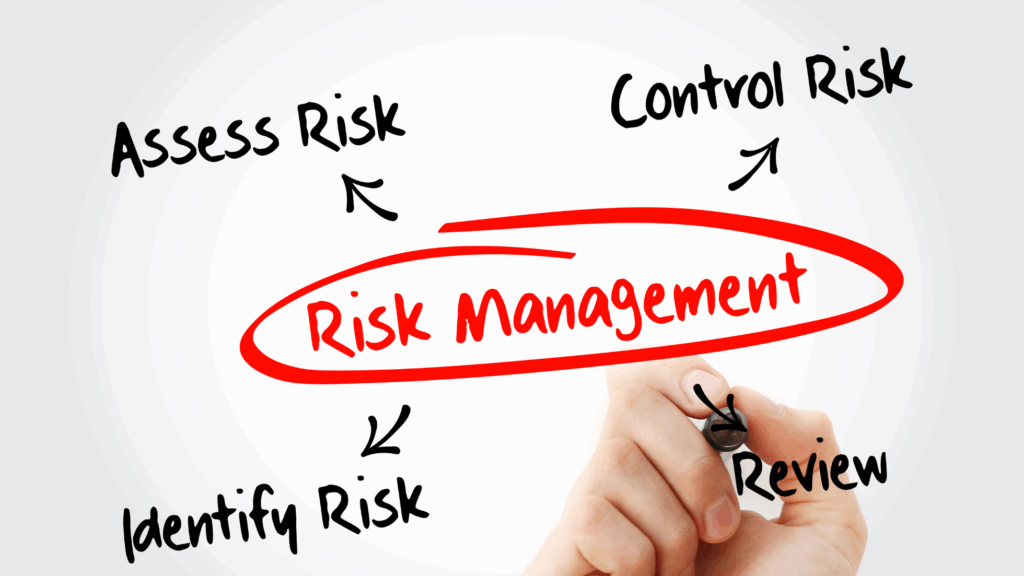“You can’t manage risk if you don’t understand it.”
– Karl Konicz, Chief Operating Officer, Circle UK Group
Understanding Risk Beyond Systems
Many organisations mistakenly view risk management as the installation of tools: alarms, locks, or firewalls. But true risk understanding requires context:
- Who or what poses the threat?
- What behaviours or patterns signal increased risk?
- How can early indicators be spotted and acted upon?
“Risk management isn’t just about having the right tools,” says Karl Konicz, COO at Circle UK Group.
“It’s about reading behaviour, predicting movement, and responding with speed and clarity.”
This behavioural lens is key. Risks often begin with people—unauthorised access, insider threats, or unusual activity. Recognising these early can mean the difference between disruption and prevention.

The Foundations of Crisis Management
A strong crisis management framework involves three interconnected pillars:
Preparedness: Planning Before the Storm
Before a crisis even occurs, organisations must conduct:
- Thorough risk assessments
- Scenario planning
- Crisis simulation exercises
- Regular review of emergency procedures
Circle UK Group supports this through consultancy services and bespoke planning support, helping businesses design escalation protocols, communication trees, and decision-making chains tailored to their operations.
Protection: Securing Physical and Digital Assets
Protection goes beyond locks and cameras. It includes an ecosystem of proactive and reactive measures designed to deter, detect, and defend:
Key Protection Tools:
- Security Personnel – On-site, trained teams to deter threats and respond swiftly.
- Access Control Systems – Including key cards, biometric scanners, and entry logs.
- 24/7 Surveillance – Remote monitoring via CCTV, motion sensors, and alarm systems.
- Perimeter Security – Fencing, lighting, and gate systems that prevent unauthorised access.
These measures are not only physical safeguards but act as the first point of intelligence gathering—detecting patterns of behaviour and building a clearer security picture over time.
Response and Recovery: Acting Under Pressure
No matter how robust the plan, incidents happen. What matters most is how an organisation responds.
Crisis Response Elements:
- Incident Response Teams – Trained to act fast with clear roles and authority.
- Live Monitoring Centres – Like Circle UK’s 24/7 Control Centre, ready to dispatch mobile units or notify authorities instantly.
- Disaster Recovery Plans – Strategies to restore services after disruption.
- Business Continuity Frameworks – Ensuring operations continue or resume quickly.
➡️ Circle UK’s 24/7 Control Centre
Speed, clarity, and coordination are everything. Circle UK’s mobile response units and crisis escalation protocols allow for swift action based on real-time data.
The Human Factor in Risk Management
While systems are crucial, people play the most vital role in both causing and resolving crises. Staff must be trained, empowered, and aware of procedures. Moreover, behavioural intelligence—the ability to observe, interpret, and act on human patterns—should be embedded into the daily security mindset.
Circle UK integrates behavioural analysis into its operational model, ensuring teams on the ground are alert not just to alarms, but to subtle changes in routine that may signal a deeper issue.
To counter these risks, Circle UK Group offers a range of proactive security measures, including:
- Security Personnel: Professionally trained guards who provide on-site protection, rapid response, and visible deterrence.
- Access Control Systems: Use of ID badges, key cards, and biometric verification to ensure that only authorized personnel gain access to restricted areas.
- Surveillance Cameras: 24/7 CCTV monitoring that provides real-time oversight and evidence collection.
- Perimeter Security: Barriers, fencing, and alarm systems that detect and deter intruders before they reach critical infrastructure.

Conclusion: From Reaction to Resilience
Crisis management is not a checkbox. It’s a mindset that must be continuously developed, adapted, and practiced. It involves looking beyond hardware and handbooks to understand the root causes, patterns, and consequences of risk.
With the right blend of preparation, protection, and response—grounded in behavioural awareness and human-led insight—organisations can turn crisis from a threat into an opportunity for resilience and growth.
Need to evaluate your organisation’s risk strategy or strengthen your crisis readiness?
Circle UK Group offers practical support—from physical security to risk planning—to help businesses stay one step ahead of the unexpected. Book a Call


